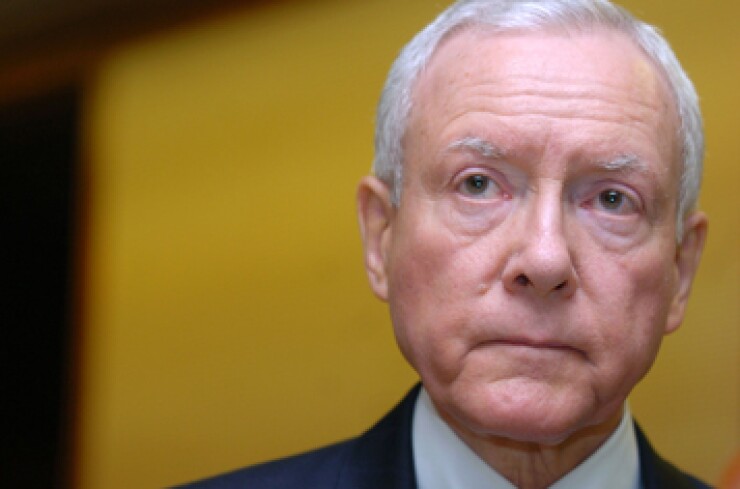
WASHINGTON – Administration officials and lawmakers are vetting candidates and rejecting some put forth by Republicans for the Puerto Rico oversight board as the Sept. 15 deadline for naming board members approaches.
The seven-member board will have the power to require balanced budgets and fiscal plans, as well as to file debt restructuring petitions on behalf of the struggling commonwealth and its entities in a federal district court as a last resort if voluntary negotiations with creditors fail.
Obama administration officials recently shut down several early board member recommendations from Senate Majority Leader Mitch McConnell, R-Ky., and Senate Finance Committee Chair Orrin Hatch, R-Utah, said sources who did not want to be named. Both senators played key roles in moving PROMESA through the Senate and Hatch is currently serving as chair of an eight-member congressional economic task force on Puerto Rico.
David Walker was a Republican-favored candidate who was rejected. Walker is a senior strategic advisor for PricewaterhouseCoopers and a former appointee in the administrations of Ronald Reagan, George H.W. Bush and Bill Clinton, sources said. He served as comptroller general of the U.S. for ten years.
Douglas Holtz-Eakin, president of the D.C.-based think tank the American Action Forum, also was rejected, sources said. Holtz-Eakin was formerly director of the Congressional Budget Office and testified at hearings on Puerto Rico, with Hatch relying on him for answers to key questions.
Additionally, Phil Gramm, a former Texas senator and chairman of the Senate Banking Committee whose name was attached to the 1985 Gramm-Rudman-Hollings Balanced Budget and Emergency Deficit Control Act, was also rejected, the sources said. The Gramm-Rudman-Hollings Act was the first to introduce the idea of sequestration, automatic government spending cuts if certain deficit reduction targets could not be met.
Those three join former New York Gov. George Pataki, who had been a widely publicized potential nominee, in reportedly not making the cut for the board. Pataki owns property in Puerto Rico.
Richard Ravitch, a former lieutenant governor of New York, has also been widely floated as a potential board member given his extensive experience with troubled municipalities. However, he has proved controversial because of his early support for territory-wide bankruptcy protection for Puerto Rico and his position on the board of bond insurer Build America Mutual, a competitor of insurance firms that hold Puerto Rico bonds.
While some creditors have anonymously said the Obama administration's rejection of Republican-supported candidates was due to Treasury Department officials, other sources have said those may just be rumors.
However, the administration may be using Treasury officials to pursue its interest in including a number of Puerto Ricans on the seven-person board instead of restricting it to the one member that PROMESA requires to either have a primary residence or place of business in the commonwealth, sources said. Treasury officials have been in Puerto Rico vetting potential local members for possible conflicts of interest like family members involved in Puerto Rico's government or investments in Puerto Rico bonds, sources said.
Congressional leadership is responsible for nominating six of the seven board members while Obama is responsible for nominating one, according to PROMESA. The law, which became effective in late June, says that congressional leadership must provide Obama with a short list of potential appointees from which the president will then choose. If Obama does not choose an individual from a list, that individual must also receive Senate approval before being placed on the board.
The speaker of the House and Senate majority leader are each responsible for recommending two members of the board while the House minority leader and Senate minority leader must nominate one. PROMESA requires one of the board members nominated by the House speaker to either have a permanent residence or place of business in the commonwealth.
Puerto Rico is currently struggling with nearly $70 billion in debt and $46 billion in unfunded pension liabilities.





